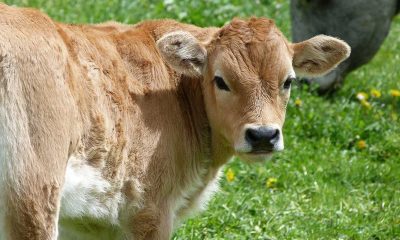Health
Looking At Baby Animals Reduces Meat Appetite In Women Says Study
Having a look at pictures of baby animals can have an influence on people’s appetite for meat according to the researchers at Lancaster University. The research has found that this reduction in appetite is far stronger in women than men. “We found that both men and women find baby farmed animals to be cute and vulnerable, and experience feelings of tenderness and warmth towards them,” said the researchers.
Baby Animal Photos Reduce Appetite
The study was conducted by the psychologists Dr Jared Piazza and Dr Neil McLatchie of Lancaster University in the UK with Cecilie Olesen of University College London. During this study, men and women were shown images of calves, baby “joey” kangaroos, piglets and lambs after which their appetite for meat was checked.

After an observation, the study revealed that men had lesser reduction in their appetite for meat. “Feeling tenderness towards a baby animal appears to be an oppositional force on appetite for meat for many people, especially women,” said the team. Dr. Piazza also added that women often take the role of caregivers even in the modern society. “Our findings may reflect women’s greater emotional attunement towards babies and, by extension, their tendency to empathise more with baby animals. Also, meat is associated with masculinity and images of tough men who consume meat for muscle building protein, along with prehistoric ideas of the male as hunter. Women have a much more ambivalent attitude towards meat and their identity is not bound up with it in the same way,” he said.
During the research, the participants were shown images of a cooked meat dish which was paired with an image of the live animal or a baby animal. The participants were also told that dish came from the animal. “We found that men and women differed in how appetising they considered the meat dishes when the meat was paired with a baby animal image, with women’s appetite for meat much lower than men’s appetite, regardless of whether the meat was from a familiar or exotic source,” said the team of psychologists.




















